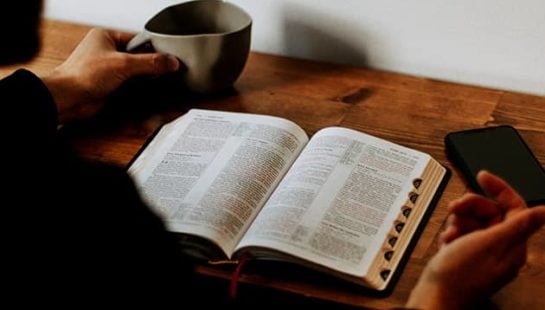Amos 5:22-24
‘Though you bring choice fellowship offerings, I will have no regard for them. Away with the noise of your songs! I will not listen to the music of your harps. But let justice roll on like a river, righteousness like a never-failing stream!’
The prophet Amos cuts straight to the point—rebuking the people of God for their apathy, their diminished compassion and the sins of slavery, economic exploitation, idolatry, social injustice and more. Amos fiercely defends the marginalised and pulls no punches with the rich and powerful.
The Message paraphrase says, ‘Do you know what I want? I want justice—oceans of it. I want fairness—rivers of it. That’s what I want. That’s all I want.’
Isaiah 30:18 And Psalm 33:4-6
‘Therefore, the Lord waits to be gracious to you, and therefore he exalts himself to show mercy to you. For the Lord is a God of justice; blessed are all those who wait for him.’
‘The Lord loves righteousness and justice; the earth is full of his unfailing love.’
Justice is part of who God is. It is the outworking of his grace and his unfailing love.
Micah 6:8 And Luke 10:27
‘He has shown you, O mortal, what is good. And what does the Lord require of you? To act justly and to love mercy and to walk humbly with your God.’
‘He answered, “Love the Lord your God with all your heart and with all your soul and with all your strength and with all your mind’ and, ‘Love your neighbor as yourself.”’
Micah and Luke are both summarising. It’s simple, but not easy—love God, love mercy, pursue justice and love your neighbour as yourself. That is the distilled instruction for the lives of the people of God.
Deuteronomy 15:10-11
‘Give generously to them and do so without a grudging heart; then because of this the Lord your God will bless you in all your work and in everything you put your hand to. There will always be poor people in the land. Therefore, I command you to be openhanded toward your fellow Israelites who are poor and needy in your land.’
Throughout Deuteronomy, Moses repeatedly communicates the law to God’s people, outlining how they are to treat those deemed ‘outcasts’. They are not to be pushed aside but given opportunities to flourish.
Isaiah 58:6-7
‘Is not this the kind of fasting I have chosen; to loose the chains of injustice and untie the cords of the yoke, to set the oppressed free and break every yoke? Is it not to share your food with the hungry and to provide the poor wanderer with shelter, when you see the naked, to clothe them, and not to turn away from your own flesh and blood?’
In this chapter, Isaiah like Micah after him, is direct in communicating a clear call to justice. Defining with clarity what being faithful to God is, and what it is not. It is feeding the hungry. It is not exploiting workers for a profit.
Luke 10:7 (Quoted In 1 Timothy 5:18)
‘. . .the worker deserves his wages.’
Matthew 23:4
‘They tie up heavy, cumbersome loads and put them on other people’s shoulders, but they themselves are not willing to lift a finger to move them.’
Justice means liberation for all, not a select elite. Jesus echoes the prophet Isaiah’s directive here. Spiritual leadership seeks to invite those on the margins into the family of God. This is the ‘fast’, or spiritual practice, we’re called to as disciples.
Proverbs 3:27-28 (Echoed In 1 John 3:17)
‘Do not withhold good from those to whom it is due, when it is in your power to act. Do not say to your neighbor, “Come back tomorrow and I’ll give it to you” when you already have it with you.’
The wisdom in Proverbs is generous to the giver and the receiver. When you can, give. When you can, act. If you have, share. This calling is to live out the love of God, as in 1 John, ‘If anyone has material possessions and sees a brother or sister in need but has no pity on them, how can the love of God be in that person?’
Psalm 9:9
‘The Lord is a refuge for the oppressed, a stronghold in times of trouble’
Psalm 68:5
‘Father of the fatherless and protector of widows, is God in his holy habitation.’
Proverbs 31:8-9
‘Speak up for those who cannot speak for themselves, for the rights of all who are destitute. Speak up and judge fairly; defend the rights of the poor and needy.’
Ephesians 2:10
‘For we are God’s handiwork, created in Christ Jesus to do good works, which God prepared in advance for us to do.’
James 1:27
‘Religion that God our Father accepts as pure and faultless is this: to look after orphans and widows in their distress and to keep oneself from being polluted by the world.’
Because God is the protector of vulnerable people, he calls his people to speak up in defence of those same people. And in Jesus, this work has already been prepared for us to do.
Matthew 25:40
‘The King will reply, “Truly I tell you, whatever you did for one of the least of these brothers and sisters of mine, you did for me.”’
The parable of the sheep and the goats reflects God’s desire to create equal access to fullness of life. Like Micah and Isaiah before him, Jesus is direct—loving God means loving others, particularly those we might call ‘the least’.
Ultimately, Jesus embodies and fulfills God’s justice; he is justice.




 Nick Lloyd,
Nick Lloyd,